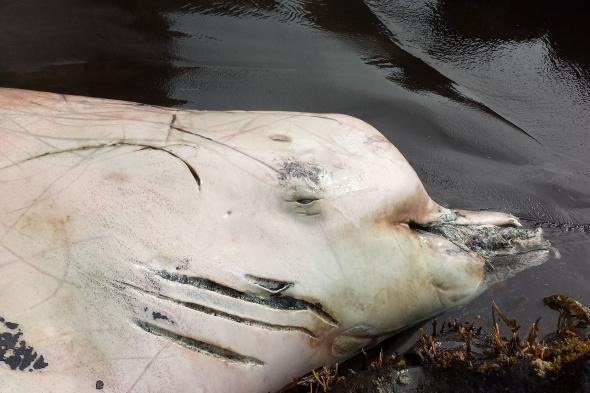Carcass Leads Scientists To New Beaked Whale Species
A study newly published in Marine Mammal Science details evidence that a whale carcass discovered in 2014 is part of a species that has long gone undiscovered, at least in official capacities. Though new to science, fishermen have been aware of this particular variety of beaked whale for a while — Japanese fishermen, for example, call it karasu (raven) due to its somewhat dark color. However, living varieties of the critter have thus far evaded scientists.
This discovery began when a biology teacher noticed a whale carcass on a sandy beach in St. George island. The whale was initially thought to be a variety of whale called a Baird's beaked whale. However, evidence quickly surfaced indicating it wasn't quite what it appeared. The 20ft length, for example, was too short for an adult Baird's beaked whale, while this carcass showed signs of being fully grown.

The carcass also had too dark of a body and too large of a dorsal fin. This prompted researchers to take a closer look, and the results of that effort were just published this week revealing that, yes, this is a new species of beaked whale. That conclusion is based off exhaustive research into the animal and visually similar beaked whales, including DNA tests, bone analyses, and more.
Speaking about the discovery, Society for Marine Mammalogy taxonomy committee member Robert Pitman said to NatGeo, "It boggles my mind to think that a large, very different-looking whale has gone unnoticed by the scientific community for so long. It sends a clear message about how little we know about what is in the ocean around us."
This new species, which lives in the North Pacific, doesn't have an official name at this point.
VIA: National Geographic
